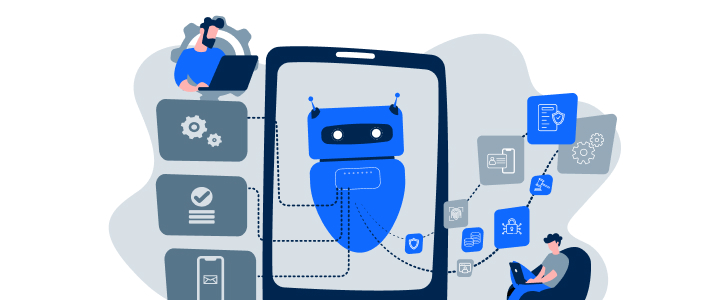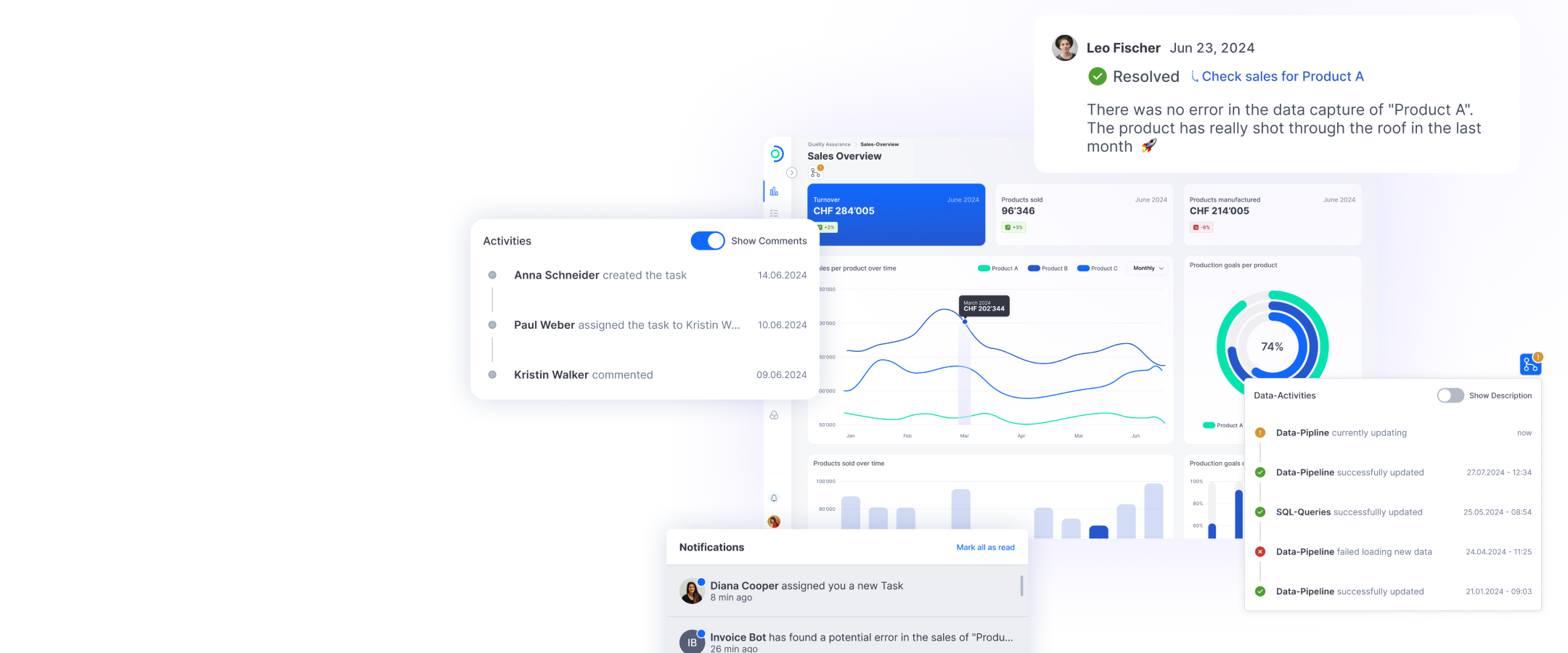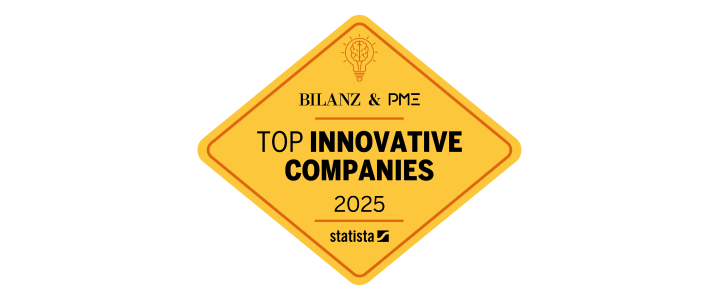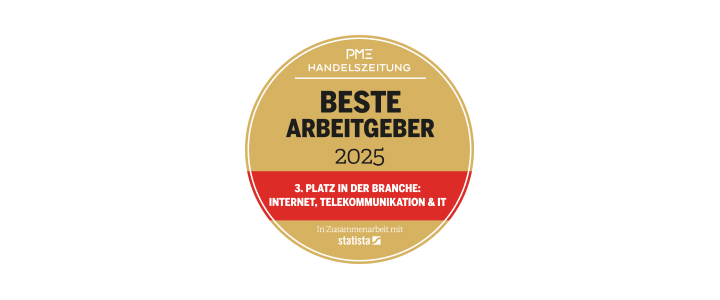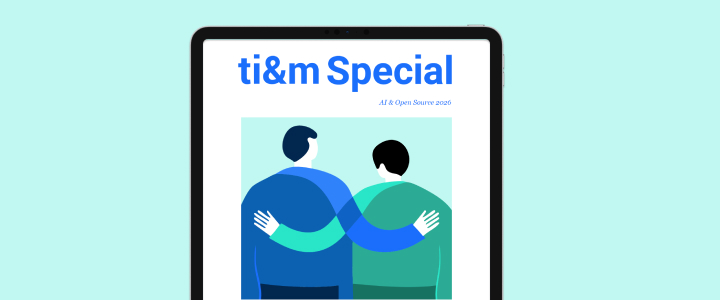On the spot: four HR managers on the new reality of work
How did people experience the paradigm shift in the world of work? We asked the HR managers of four major Swiss firms.

Sandra Forster-Bernacchia– Chief Human Resources Officer & GL-Mitglied, V-ZUG AG
What changes have there been at your company and in your team over the last two years?
We already had an annual working hours model and the opportunity to work from home, even before the pandemic. During and after the pandemic, we created a framework with the initiative “SmartWork”, which gives employees and teams a high degree of autonomy in organizing their own work: We use ‘team charters’ to arrange the minimum framework we set ourselves as a team – taking into consideration the mandatory legal and operational requirements – so we can work as flexibly and efficiently as possible. People were already familiar with hot-desking, mobile working and job sharing in the HR department, so this stood us in good stead for the challenges imposed by the pandemic.
Did you introduce any new technological tools during the pandemic to improve collaboration?
MS Teams and other tools were already available before the pandemic, but these were expanded, particularly the infrastructure for virtual meetings. Right now, we’re running pilot schemes to test various new tools and working models that better meet the needs of hybrid working and enable us to develop collaboration further regardless of location.
Innovation is usually the fruit of collaboration. Has the obligation to work from home had a negative impact on the potential for innovation? And if so, what steps have you taken to counteract this?
Some of the new working methods were found to be restrictive. Looking back, however, we haven’t noticed any effect on innovative potential; rather, we’ve been able to achieve similar results to the past. In my view, the new methods have further invigorated collaboration. As with many things, a good mix of direct, personal interaction and targeted working has proven its worth here too. Digital tools such as Miro, MS Teams, etc. are ultimately crucial in whether you remain innovative as a team and as a business, including in terms of collaborating, so that you can develop solutions together.
What role does HR play in the changing world of work? Has HR become more relevant?
HR takes a leading and pioneering role. Whether HR takes on influence, responsibility and thus leadership as a relevant business function depends on the quality of its contribution in a business sense. As HR managers, thanks to our focus on human behavior, we can foster a different way of thinking, and this is something that is becoming all the more important given the challenges of a VUCA world. This also includes taking an active position in discussions and decisions, and overcoming resistance. In addition, today’s HR work plays an essential role in the transformation process that many companies are facing due to the changes mentioned above. So it’s up to HR managers to assess the associated (staff) risks and counteract these with targeted personnel planning, as well as by building and expanding on relevant competencies.

Michael Müller– Country Head of HR Switzerland, Franke Gruppe
What changes have there been at your company and in your team over the last two years?
The pandemic has steamrollered all of us and presented us with huge challenges regarding how companies are organized, especially in production. In general, the pandemic has made working models more flexible, and has encouraged further digitalization in all business areas. It has also
demonstrated that we were on the right track with our comprehensive digitalization strategy. Since then, we’ve focused strategically on our working culture with different touchpoints, from onboarding to retirement; but hybrid remote working models have also become a key factor. Franke has
launched a comprehensive transformation program, as we want to place an even stronger
balanced focus on customer orientation, innovation, sustainability, flexibility and autonomy.
Did you introduce any new technological tools during the pandemic to improve collaboration?
One fundamental change was switching from Google Suite to Microsoft365. Fully integrating Teams, OneDrive, etc. made it easy to switch to remote working across the board, and today this forms the basis for agile collaboration. But we’ve also made the switch to exclusively hybrid solutions in our leadership and training programs too, and we’ve struck up new partnerships to make this happen. Today, our learning journey includes, for example, providing all employees with LinkedIn learning with tailored learning paths or digital coaching. We’ve also said goodbye to the classical employee survey, and have moved on to much more efficient pulse checks.
Innovation is usually the fruit of collaboration. Has the obligation to work from home had a negative impact on the potential for innovation? And if so, what steps have you taken to counteract this?
The requirement to work from home didn’t cause any fundamental changes in internationally ori-ented areas, or in project teams or the IT department either. We’ve found that it pays to give our employees flexibility and trust. Yes, people could be innovative in the online world, but we found that it’s very difficult to replace the value of personal interaction: “digital fatigue” quickly spread. Instead, structured innovation processes with clear responsibilities have emerged, which hadn’t existed to that extent before.
What role does HR play in the changing world of work? Has HR become more relevant?
During the pandemic, HR did a very good job overall; it took on responsibility, and, along with the executive boards, it guided people through the crisis with a package of measures. That said, I wouldn’t claim that the relevance of HR has changed; it’s just that its value became more visible again. It’s important to take advantage of the momentum and, building on what has been achieved, continue to make key contributions to the innovation boost in digitalization and further professionalization.

Christian Beri– Head of HR People Development & Recruiting, VZ VermögensZentrum
What changes have there been at your company and in your team over the last two years?
They were challenging and very exciting at the same time. Like most firms, we had to reorganize. If we hadn’t, we wouldn’t have been able to implement all the Federal Council measures consistently, protect our employees, or continue operating properly. For example, we switched to shift work and working from home. At the same time, we installed Plexiglas walls in the meeting rooms to be able to carry on meeting customers on site. Where possible, we made use of our digital channels and supported customers via video or through webinars. That worked well. Our habits were temporarily turned upside down – both at home and at work. These changes demanded a lot of patience and flexibility. Our employees responded very well; they all pulled together. That in turn lifted our sense of team spirit. We also learned that we can work well regardless of location if we use the digital opportunities on offer.
Did you introduce any new technological tools during the pandemic to improve collaboration?
We had the advantage of already being in a good position digitally – including in core HR processes. We were therefore able to switch to a comprehensive online recruitment process almost in the blink of an eye – from submission of the application through to interview. In addition, we made greater use of our existing tools. These include, for example, “mobile learning”, via our VZ learning app, as well as our training webinars – on the customer side, video consulting was already being used before the pandemic. It was a challenging time, especially for our in-house training academy. Lots of modules had been deliberately designed to take place in a physical framework, so we had to adapt them. So our biggest leap forward in digitalization took place at the academy.
Innovation is usually the fruit of collaboration. Has the obligation to work from home had a negative impact on the potential for innovation? And if so, what steps have you taken to counteract this?
For us, the VZ is a meeting point. We’d like to spend a large part of our working time there. That’s because we’re firmly convinced that we need our coworkers in order to do our job well, happily, and perhaps even better. This promotes creative collaboration, innovative ideas and good decisions. This kind of collaboration makes us more than the sum of our parts. And it’s part of our culture. Our customers really appreciate this proximity and this culture, and praise us for it time and again.
What role does HR play in the changing world of work? Has HR become more relevant?
Definitely, the significance of HR has increased immensely over the last few years. I’m thinking, for example, about management, which is the biggest lever for implementing change and further development. We also work very closely as a sparring partner with the consulting team – our core business. This collaboration is fundamental, because we too are feeling the skills shortage. For us, it is
becoming increasingly important to be able to recruit the right people for advising our customers. That’s why we’re always on the lookout for qualified staff. We have long focused on helping university graduates start their careers with our trainee program. That’s a huge help.

Beat Hunziker– Head of Human Resources, Helsana Versicherungen AG
What changes have there been at your company and in your team over the last two years?
We’ve learned to appreciate lots of things that we took for granted before. In general, there was a renewed sense of more mutual understanding, respect, solidarity, flexibility, trust and appreciation in our collaboration. What's more, some things that were unthinkable before have now become possible. Fears that, in certain areas, working from home wouldn’t work, that it would lead to inefficiency, or that leadership would be lacking, fortunately proved to be groundless. The pandemic has shown that we live in a networked, multimedia society. During lockdown, we were forced to get used to working from home, overnight, so to speak. It proved to many skeptical managers and employees that collaboration and productivity can be maintained even remotely – also thanks to our highly effective IT department, which got nearly everyone up and running at home within mere weeks, so that operations could continue to the usual high standard.
Did you introduce any new technological tools during the pandemic to improve collaboration?
Before the pandemic, Helsana had opted for a new space concept and had also decided to roll out Microsoft M365 with Teams as its new team-working platform. The pandemic expedited the project, and increased acceptance of the new solutions. This also included quickly setting up meeting rooms with Teams Rooms devices and Surface Hub, so that hybrid meetings can take place smoothly.
Innovation is usually the fruit of collaboration. Has the obligation to work from home had a negative impact on the potential for innovation? And if so, what steps have you taken to counteract this?
We were able to go ahead with our projects as planned. Everyday structures became somewhat blurred, leading to new freedom and a greater openness towards unconventional ideas. With digitalization, we have grown more and more aware that personal interaction is just as important: We actively promote working together on-site, thus strengthening our sense of teamship and helping us to identify with the company. That's why we like our employees to do around 60% of their workload on the premises. The key thing is to strike the right balance between different ways of interacting, in order to strengthen our innovative power. Employees and managers must be enabled and empowered to do this. In various training programs we raise awareness of topics such as hybrid management and remote early detection of health impairments, and promote cross-department collaboration with workshops.
What role does HR play in the changing world of work? Has HR become more relevant?
Absolutely; the relevance of HR has increased significantly. Even before the pandemic, we played a central role in shaping new worlds of work and new ways of working together. Thanks to topics such as cross-border commuting, working from home regulations and checking and supporting compliance with Covid-19 rules during the pandemic, we played an important role as a hub and as experts, and also offered our employees opportunities to get vaccinated. HR’s key function is to guide and empower employees and managers through a changing world of work, and help them meet the new requirements.

